Ms. Abby Daniela Ortega Sandoval defended her thesis on August 28, 2023 at the University of Bonn. Ms. Sandoval was supervised by PD Dr. Luna Bharati from ICWRGC since 2019...
Read More
Dipesh Chapagain defended his doctoral thesis at the Center for Development Research (ZEF) of Bonn University on 07. August 2023. He was supervised by PD Dr. Luna Bharati from ICWRGC....
Read More
Dr. Luna Bharati co-authored a paper that assesses the spatiotemporal trends of multiple types of climatic disasters with respect to the related mortality and vulnerability and their attribution to climatic...
Read More
The world is witnessing an increase in environmental conflicts (ECs) caused by the overexploitation and pollution of natural resources. In this paper, a multidisciplinary group of researchers (including dr. Luna...
Read More
Dr. Luna Bharati is co-author to a paper that discusses the factors that hinder and promote implementation of Sustainable Drainage Systems (SUDS) in Bogotá, considering the perspectives of the public...
Read More
Dr. Marianela Fader from ICWRGC collaborated with another group of authors to demonstrate that multiple-cropping and cropland expansion in Brazil do not only affect agricultural yields but also water productivity....
Read More
What ecologists should know before using land-use/cover change projections for biodiversity and ecosystem service assessments Water is not only rain, rivers and lakes. Water is fundamentally related to the landscape,...
Read More
On 17 November 2020, the First Mediterranean Assessment Report from the “Mediterranean Experts on Climate and Environmental Change” was posted online. The report titled “Climate and Environmental Change in the...
Read More
In a new publication “Importance of Spatial Resolution on Global Groundwater Modelling” by Reinecke et al. in a special issue of Groundwater, the authors explore the difficulties in modelling groundwater...
Read More
This work was composed during an internship at the International Centre for Water Resources and Global Change (ICWRGC), during a span of 3 months, from May to August in 2019. Taking up the publication from Molnar, Kata, et al. (2017), this internship work focuses on cooperation between countries. …



